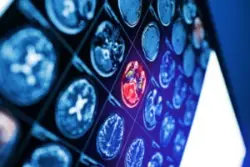
Brain bleeds are one of the most serious types of injuries that can be sustained in a car accident, yet they are often overlooked.
A brain bleed, or intracranial hemorrhage, occurs when a blood vessel ruptures and causes bleeding within the skull. While any type of trauma to the head can cause a brain bleed, car accidents are one of the leading causes of this type of injury.
If you’ve suffered from a brain bleed after an auto crash, be sure to contact the Michigan car accident lawyers at White Law PLLC so they can help fight for your case.
Understanding Brain Bleeds
Car accidents can cause a wide range of injuries, and one of the most serious and potentially life-threatening injuries is a brain bleed. A brain bleed from a car accident occurs when there is bleeding within the brain tissue or surrounding areas.
During a car accident, the force of impact can cause the brain to move violently within the skull, leading to tearing or rupturing of blood vessels. This can result in bleeding, which can put pressure on the brain and cause further damage.
There are different types of brain bleeds that can occur in car accidents, including the following:
- Subdural Hematomas: This type occurs when there is bleeding between the brain and the outermost protective layer called the dura.
- Epidural Hematomas: This type occurs when there is bleeding between the skull and the dura.
- Intracerebral Hemorrhages: This happens when there is bleeding within the brain tissue itself.
Your Fight Is Our Fight
What Are the Symptoms of a Brain Bleed?
When it comes to brain bleeds in car accidents, recognizing the symptoms is crucial for fast medical intervention. While symptoms may vary depending on the severity and location of the bleed, there are a few common signs to be aware of.
One of the most noticeable symptoms is a sudden and severe headache that is often described as the worst headache of a person’s life. Other common symptoms of a brain bleed from a car accident may include:
- Confusion
- Dizziness
- Loss of consciousness
- Nausea
- Vomiting
- Seizures
- Slurred speech
- Weakness
- Numbness
- Changes in vision (blurred or double vision)
Understanding these symptoms can help you recognize when you or someone you know may be experiencing a brain bleed.
More About Physical Symptoms
Some common physical symptoms of a brain bleed from a car accident include headaches, dizziness, nausea, and difficulty with balance and coordination. You may also experience blurred vision, seizures, or weakness on one side of your body. These symptoms can vary in severity and may not always appear immediately after the accident.
It’s important to seek medical attention as soon as possible if you experience any of these symptoms, as they can indicate a serious brain injury. Dealing with the physical symptoms of a brain bleed can be challenging, but there are coping strategies and support systems available to help you.
Long-term effects of a brain bleed can include memory loss, difficulty with concentration, and changes in mood or personality. Therapy options, such as cognitive-behavioral therapy and occupational therapy, can help you manage these effects and improve your quality of life.
It’s important to have a strong support system of family and friends to help you through the recovery process.
More About Cognitive Symptoms
One of the most challenging aspects of recovering from a brain injury caused by a car accident is dealing with the cognitive symptoms that can impact daily life. Cognitive impairment is a common symptom that can affect attention, memory, problem-solving skills, and communication abilities. These symptoms can be temporary or long-lasting, depending on the severity of the injury.
Long-term effects of cognitive impairment can have a significant impact on a person’s life. It can affect their ability to work, socialize, and perform daily tasks. It may also cause frustration and emotional distress, leading to anxiety and depression.
Therefore, it’s essential to seek medical attention and receive appropriate treatment to manage the symptoms and improve cognitive function. With proper care and support, it’s possible to regain cognitive abilities and resume a fulfilling life after a brain bleed from a car accident.
More About Behavioral Symptoms
You may experience changes in your behavior after a head injury, such as irritability or impulsiveness. The emotional impact of a brain bleed from a car accident can be overwhelming, leaving you feeling confused and frustrated. Coping strategies can help you manage these changes and regain control of your behavior.
To begin with, it’s important to recognize that changes in behavior are a common side effect of head injuries. Some people may become more aggressive or argumentative, while others may withdraw and become more reserved. It’s important to communicate with your loved ones and let them know what you’re going through. They can offer support and help you find coping strategies that work for you.
In addition to seeking support from loved ones, there are several coping strategies you can try to manage your behavioral symptoms. These include mindfulness exercises, such as deep breathing and meditation, as well as relaxation techniques, like yoga. It’s also important to maintain a healthy lifestyle, including regular exercise, a balanced diet, and plenty of sleep.
By taking care of yourself both physically and mentally, you can reduce the emotional impact of your brain bleed and regain control of your behavior.
Contact White Law PLLC If You’ve Suffered From a Brain Bleed After a Car Accident
So, now you know the causes and symptoms of brain bleeds from car accidents. It’s crucial to understand that brain bleeds can lead to severe consequences if left untreated.
If you or someone you know has been involved in a car accident and experiences any of the symptoms mentioned, it’s essential to seek medical attention immediately. Then, contact White Law Michigan car accident lawyers today to get the compensation you deserve.
We’re Experienced. We Care.
We Exceed Client Expectations.


